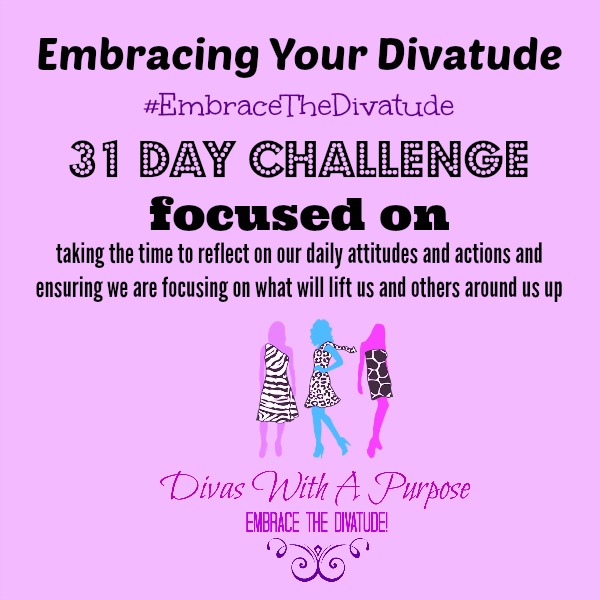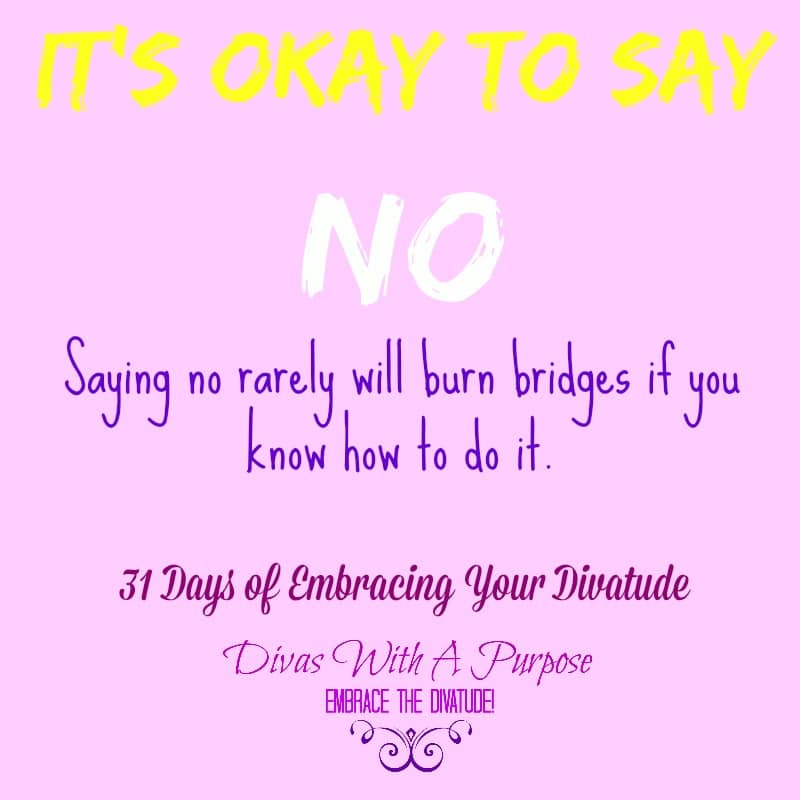It Is Okay To Say No
Welcome to Day 22 of our 31 Days of Embracing Your Divatude Challenge! Today we remind ourselves that it is okay to say no.
If you are new to the challenge, you can catch up here.
Briefly, the month of May is dedicated to focusing on our Divatude – being driven, inspiring, victorious and called to action in our personal and professional lives. As women, different aspects of divatude impact our daily walk at all times. Our focus with this challenge is taking the time to reflect on our daily attitudes and actions and ensuring we are focusing on what will lift us and others around us up.

While a short word, it’s the hardest for some people to learn to say. “No” is a very powerful word and it can be a difficult thing to tell people, especially if you’re worried about burning bridges. Many of us fall into the category of people-pleasers. The truth is, saying no rarely will burn bridges if you know how to do it.
Evaluate the Circumstances
Listen carefully to the other person before blurting out “no”. Never interrupt the person speaking with a no. By listening carefully to the other person, you’ll have plenty of time to evaluate the circumstances – including your own feelings about the matter. Pay special attention if your emotional strings are being pulled. This is always a good time to step back and tell the person you need to give it some thought.
Avoid Detailed Excuses
There is no need to give a very detailed excuse about why you cannot do something. There is also no reason to be upset if you need to say no. A simple, “This is not the right time for me, but please ask me again in the future” (assuming you do want to be asked again) will suffice. Giving too many details about why the answer is no will confuse the situation.

Never Lie
Avoiding too many details about your “no” answer is the best way to avoid telling a lie. If you lie, chances are you’ll end up caught in the lie and of course, that’s the best way to burn bridges. “No I can’t do that project because I have too many projects right now” won’t look so great if you then announce the next day on social media that you are having a sale on so and so projects. Best to just be upfront and tell the person no politely.
Stick to Your Guns
Some people have a hard time taking no for an answer. They know it’s hard for you to say no and they will play on that, especially if they know you’re a people pleaser. If you’ve taken the time to think about your answer before giving it and did not just blurt out no, then there is no reason to change your mind. Just stick to the no and explain the initial reasons once more, and state that this is unlikely to change so please not to ask you again.
Redirect and Recommend
A really great way to say no is to deflect the problem to someone else. If you can redirect the questioner to someone else and recommend a person who might be able to say yes, so much the better. Then you become a valuable resource to the person/business rather than someone who has said no. You said no, but you gave them a lead on someone who may be able to do it even better.
Finally, try not to make “no” your first answer. It’s okay to say that you need to think about something and to ask questions before giving an answer one way or another. It’s also okay to say no to something after having given it considerable thought. No is not a bad thing to say, if you can learn to say it respectfully and with thoughtful consideration of the other parties involved.
Today’s challenge is to evaluate times you have said “yes” when everything inside you screamed “NO”. Determine why and how you could have handled the situation differently. Commit to following the steps outlined above the next time a similar situation comes around.
